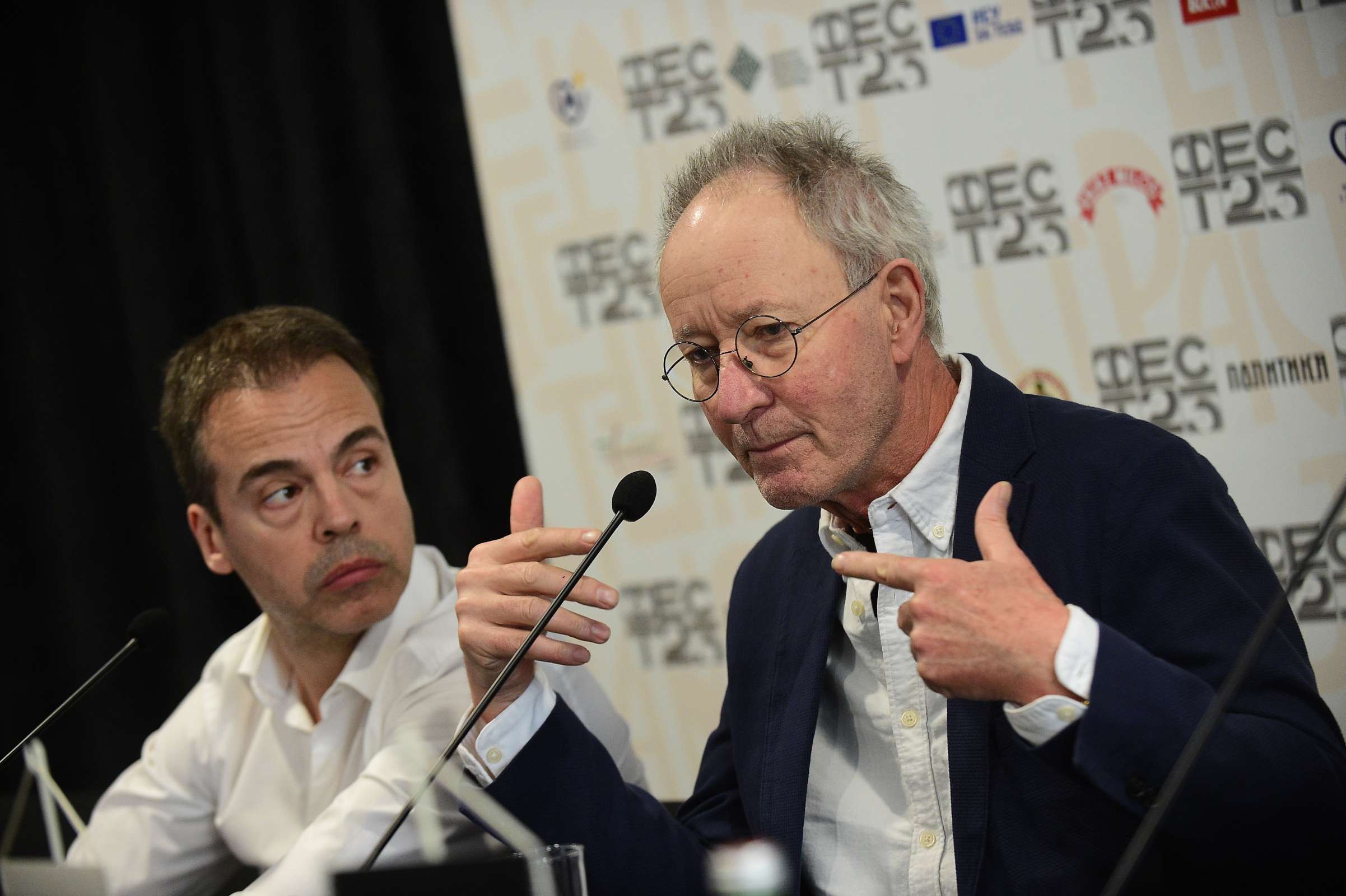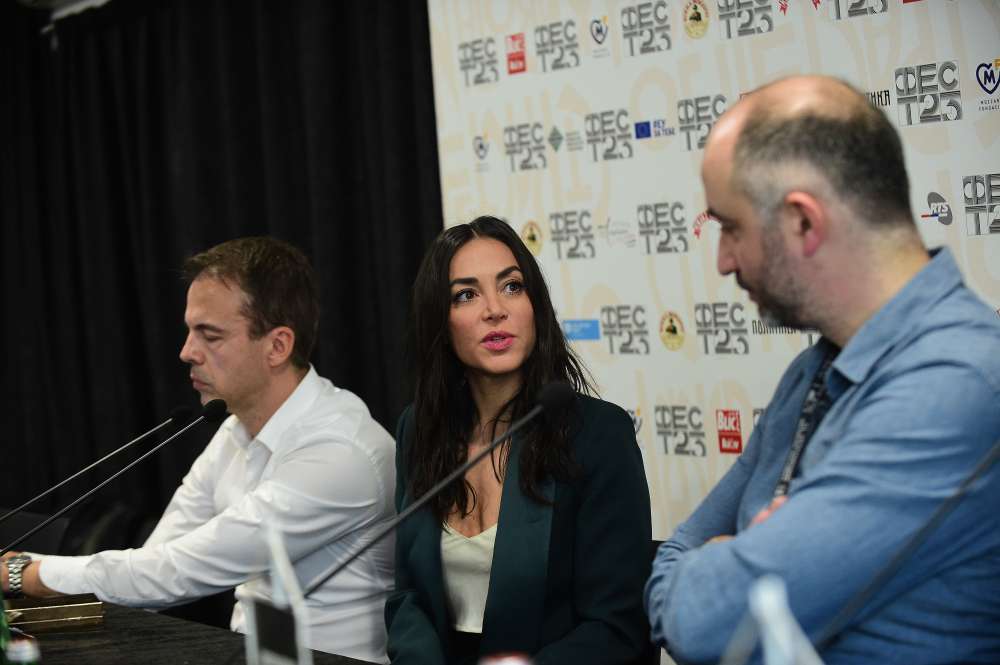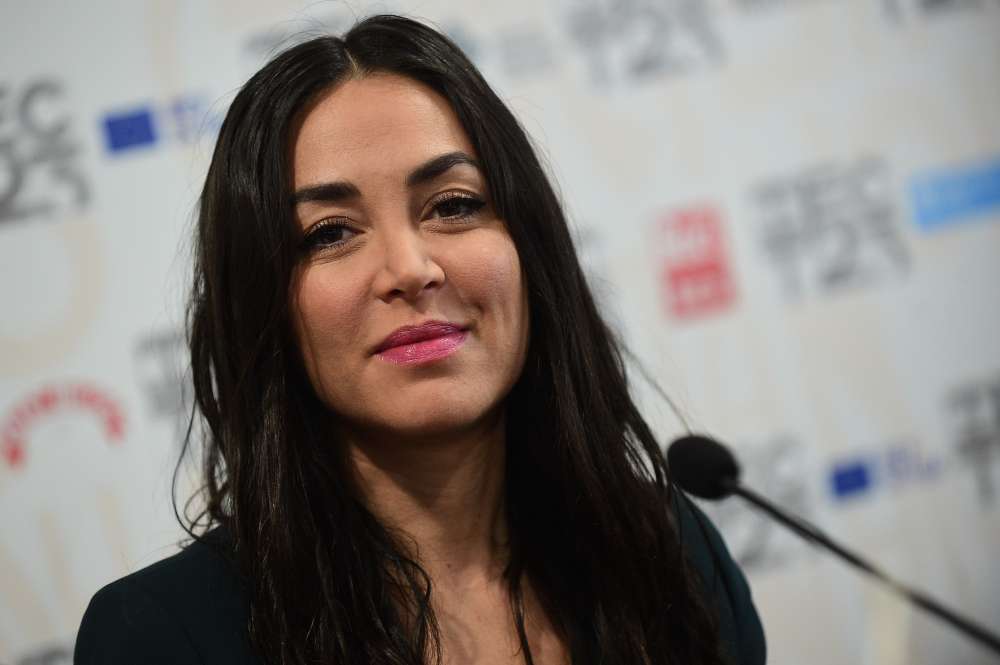Director Rolf de Heer presented his film ‘The Survival of Kindness’, which is screened within the Main Competition Programme, to the accredited journalists of the 51st FEST. Heer came to Belgrade immediately after the Berlinale, where his film opened the competition programme, but also won the FIPRESCI award.
‘The screening of my film in Berlin was so technically perfect and fantastic, the audience was so attentive, focused, concentrated on the plot, that it seems to me that I will never watch that film again in such a perfect performance. It seemed that for the first time the film was complete, at least I had that feeling’, said the director about his impressions of the film's reception in Berlin. According to him, while driving to a mountain about an hour away from his house, he suddenly saw an image of his friend Peter Djigirr in a cage in a desert and decided that this would be the beginning of his film.
‘For me, a film is a journey, and if it starts in the desert, it should reach the mountains’, he stated.
Since Djigirr could not play in the film, the director began searching for a replacement and came across a woman, who had the qualities he was looking for in the main character, and realized that the protagonist does not have to be a man. The co-production of Australia, the USA and China, ‘The Survival of Kindness’ is a story about racism, about the fact that there is optimism, the main character carries it, because, according to Heer, he does not trust in politicians but in individuals.
The film follows the journey of a black woman, left in a cage to die, who manages to break free. From the desert, through the mountains, to the city, she goes in search of a new beginning.
He said that given the pandemic, he had had to make a film adapted to covid conditions, which had meant shooting mostly outdoors, having a small crew, reducing the budget, adding that the idea to make this film had been also inspired by the Black Lives Matter movement.
‘In Australia as well there was a need for protests, but because of the corona virus and the lockdown, every protest was illegal. At the same time, politicians denied the high risk of covid in a very subtle way, because they implied that "colored" and poor people mostly die from the virus, which was less important.’
Heer stated that there was optimism in his film and that the main character carried it.
‘I do not have faith in politicians that they will ever bring us a better time, you see so many wars in the world, but I only trust in some individuals, I have faith in ordinary people who are working hard to make the world a better place. How? Well, just one sincere smile with wishing someone a good day is enough. Such a small thing can make a big difference’, concluded the director.
Survival of Kindness’ is screened on 4 March (8 p.m.) in the Belgrade Youth Centre and on 5 March (2.30 p.m.) in the Belgrade Cultural Centre.
As part of the FEST Special programme, the film ‘Rheingold’ directed by Turkish-German director Fatih Akin also arrived at FEST and it was presented by actress Mona Pirzad. This German-Italian-Dutch co-production follows an emigrant from Iraq who becomes a criminal in Germany. He plans a gold heist, but when everything goes wrong, another door opens for him.
‘It was a great honor for me to work with Fatih Akin. He is amazing, a real genius. Very concise and succinct, he has the gift of conveying to the actors what he wants in a few sentences, sometimes even in one. While I was shooting some very intense scenes, he made me feel completely safe’, said the actress, to whom his film ‘Head-On’ was her favorite film ever. She stated that it had been important for her to open the eyes of the viewers with her role and the film about refugees, to make them aware of the world around them.
‘Rheingold’ will be shown at FEST on 4 March at the Cultural Centre of Belgrade and on 5 March at the Belgrade Youth Centre.











